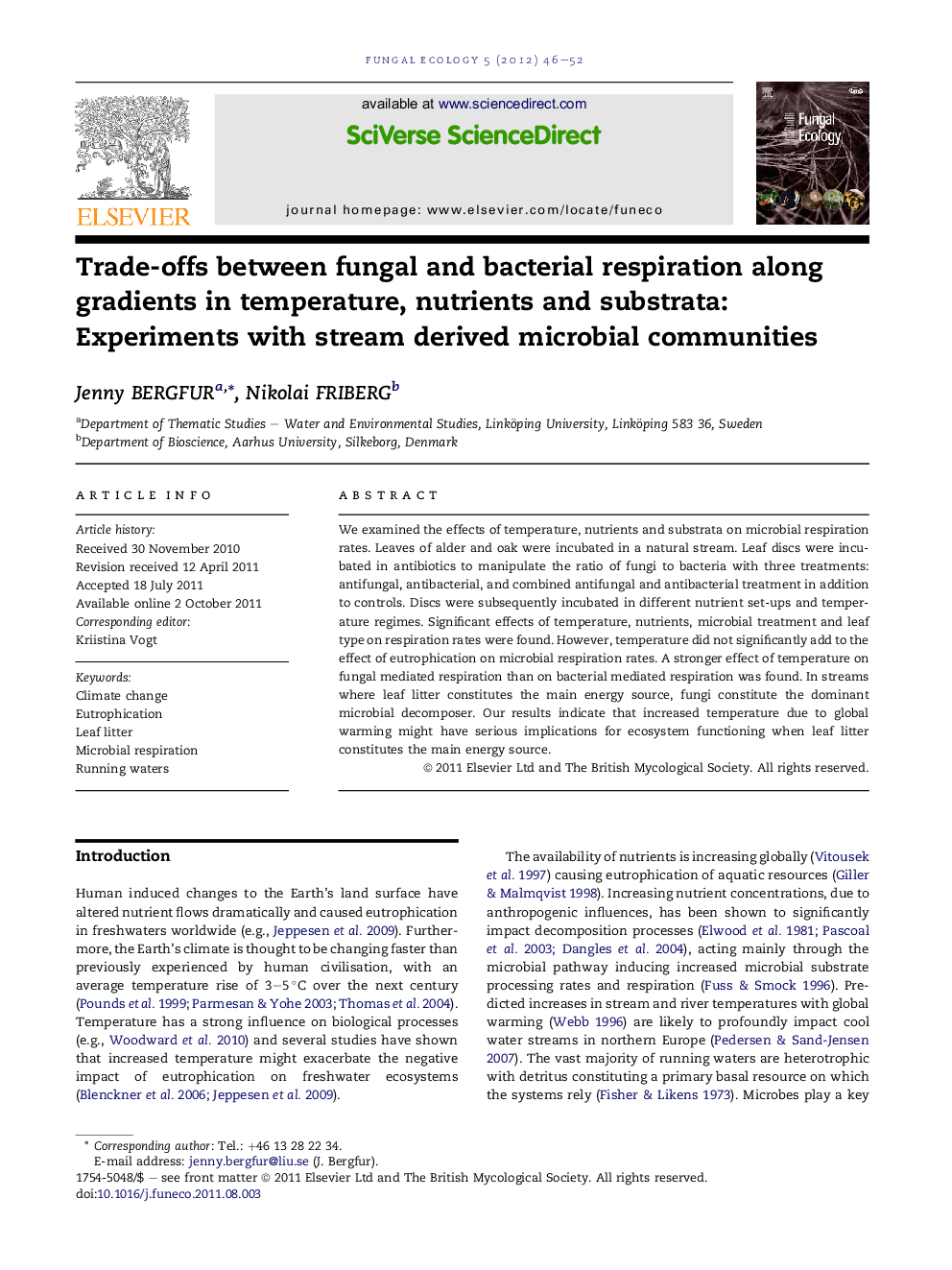| Article ID | Journal | Published Year | Pages | File Type |
|---|---|---|---|---|
| 2053619 | Fungal Ecology | 2012 | 7 Pages |
We examined the effects of temperature, nutrients and substrata on microbial respiration rates. Leaves of alder and oak were incubated in a natural stream. Leaf discs were incubated in antibiotics to manipulate the ratio of fungi to bacteria with three treatments: antifungal, antibacterial, and combined antifungal and antibacterial treatment in addition to controls. Discs were subsequently incubated in different nutrient set-ups and temperature regimes. Significant effects of temperature, nutrients, microbial treatment and leaf type on respiration rates were found. However, temperature did not significantly add to the effect of eutrophication on microbial respiration rates. A stronger effect of temperature on fungal mediated respiration than on bacterial mediated respiration was found. In streams where leaf litter constitutes the main energy source, fungi constitute the dominant microbial decomposer. Our results indicate that increased temperature due to global warming might have serious implications for ecosystem functioning when leaf litter constitutes the main energy source.
► We studied the combined effects of temperature, nutrient concentration and substrate type on freshwater microbial respiration rates. ► Leaves from two tree species, alder and oak, were used as substrates. ► Antibiotics were used to inhibit microbial activity: bacteria, fungi or both. ► Respiration rates increased with increased temperature and nutrient concentration. ► Temperature dependence was most pronounced for fungi, indicating that this microbial component is more susceptible to climate change.
